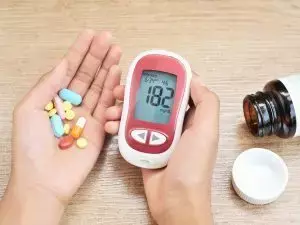- Home
- Medical news & Guidelines
- Anesthesiology
- Cardiology and CTVS
- Critical Care
- Dentistry
- Dermatology
- Diabetes and Endocrinology
- ENT
- Gastroenterology
- Medicine
- Nephrology
- Neurology
- Obstretics-Gynaecology
- Oncology
- Ophthalmology
- Orthopaedics
- Pediatrics-Neonatology
- Psychiatry
- Pulmonology
- Radiology
- Surgery
- Urology
- Laboratory Medicine
- Diet
- Nursing
- Paramedical
- Physiotherapy
- Health news
- Fact Check
- Bone Health Fact Check
- Brain Health Fact Check
- Cancer Related Fact Check
- Child Care Fact Check
- Dental and oral health fact check
- Diabetes and metabolic health fact check
- Diet and Nutrition Fact Check
- Eye and ENT Care Fact Check
- Fitness fact check
- Gut health fact check
- Heart health fact check
- Kidney health fact check
- Medical education fact check
- Men's health fact check
- Respiratory fact check
- Skin and hair care fact check
- Vaccine and Immunization fact check
- Women's health fact check
- AYUSH
- State News
- Andaman and Nicobar Islands
- Andhra Pradesh
- Arunachal Pradesh
- Assam
- Bihar
- Chandigarh
- Chattisgarh
- Dadra and Nagar Haveli
- Daman and Diu
- Delhi
- Goa
- Gujarat
- Haryana
- Himachal Pradesh
- Jammu & Kashmir
- Jharkhand
- Karnataka
- Kerala
- Ladakh
- Lakshadweep
- Madhya Pradesh
- Maharashtra
- Manipur
- Meghalaya
- Mizoram
- Nagaland
- Odisha
- Puducherry
- Punjab
- Rajasthan
- Sikkim
- Tamil Nadu
- Telangana
- Tripura
- Uttar Pradesh
- Uttrakhand
- West Bengal
- Medical Education
- Industry
Drug combo controls blood sugar, weight and BP in Diabetics: Study

PHILADELPHIA - Researchers at Thomas Jefferson University have found in a new multi-center double-blind, phase 3, randomized controlled trial that drug combo of dapagliflozin and exenatide effectively controls blood sugar and weight in diabetes patients.Moreover the combination continues to stay effective, without loss of effect, after two years of continual use.
The results of the study have been published in the journal Diabetes Care.
The two classes of drugs act additively, improving the effects on a number of diabetes indicators. Dapagliflozin belongs to a class of drugs called sodium-glucose cotransporter-2 (SGLT2) inhibitors that cause excess glucose to be excreted in the urine. Exenatide belongs to a class of drugs called glucagon-like peptide-1 receptor agonists (GLP-1RAs), which enhance glucose-dependent insulin secretion, lower hepatic glucose output, slow gastric emptying and increase satiety. Together, the two drugs promote and maintain better blood sugar control and produce additive weight loss and improve blood pressure.
Patients with Type 2 diabetes often take metformin as first-line therapy to help stabilize their blood sugar. Eventually, some patients no longer respond to metformin and require additional treatment. A few years ago, pivotal short-term trials showed that a combination of two drugs controlled diabetes progression better than either single drug alone.
"Many therapies in diabetes management are short-lived, which is why it's useful to test for long-term effect," says senior author Serge Jabbour, MD, director of the division of endocrinology and the Diabetes Center at Thomas Jefferson University. "Our study showed that a combo regimen of dapagliflozin and exenatide continued to control patients' glucose for over two years. This is a very encouraging."
A total of 695 adults whose Type 2 diabetes was not controlled with metformin, were randomly assigned to three study groups. One group received weekly exenatide injections in addition to metformin. Another group took daily dapagliflozin pills in addition to metformin, and a third group received both drugs together. The study was an extension study of the pivotal DURATION-8 trial, meaning that patients were given the option to continue in the trial longer.
The results confirmed that the group of patients receiving both drugs had better blood sugar control than patients receiving just one of the drugs - and demonstrated, for the first time, that the effect was stable for the duration of the extended two-year study period. The study also showed a clinically relevant reduction in weight and blood pressure, measures that can contribute to Type-2 diabetes and overall health. The researchers saw no unexpected safety concerns related to the drug combination in the study participants.
Other studies with both drugs have also suggested that metabolic markers such as lipid profile also improved.
"These two classes work synergistically to help control a Type-2 diabetes patient's glucose levels, and other measures associated with diabetes," says Dr. Jabbour. "We can now feel more confident about prescribing these medications long term."
For further details log on to:
Serge A. Jabbour, Juan P. Frias, Azazuddin Ahmed, Elise Hardy, Jasmine Choi, C. David Sjostrom, and Cristian Guja, "Efficacy and Safety Over 2 Years of Exenatide Plus Dapagliflozin in the DURATION-8 Study: A Multicenter, Double-Blind, Phase 3, Randomized Controlled Trial," Diabetes Care, DOI: 10.2337/dc19-1350, 2020.
Dr Kamal Kant Kohli-MBBS, DTCD- a chest specialist with more than 30 years of practice and a flair for writing clinical articles, Dr Kamal Kant Kohli joined Medical Dialogues as a Chief Editor of Medical News. Besides writing articles, as an editor, he proofreads and verifies all the medical content published on Medical Dialogues including those coming from journals, studies,medical conferences,guidelines etc. Email: drkohli@medicaldialogues.in. Contact no. 011-43720751


